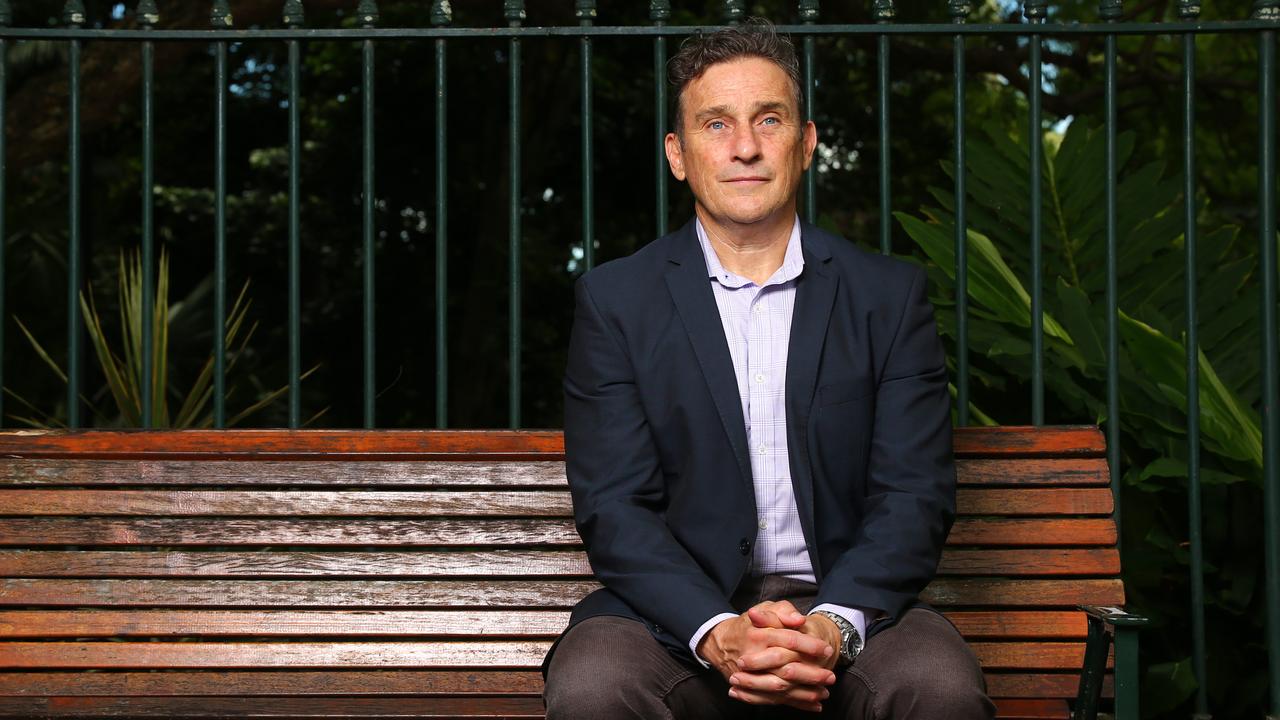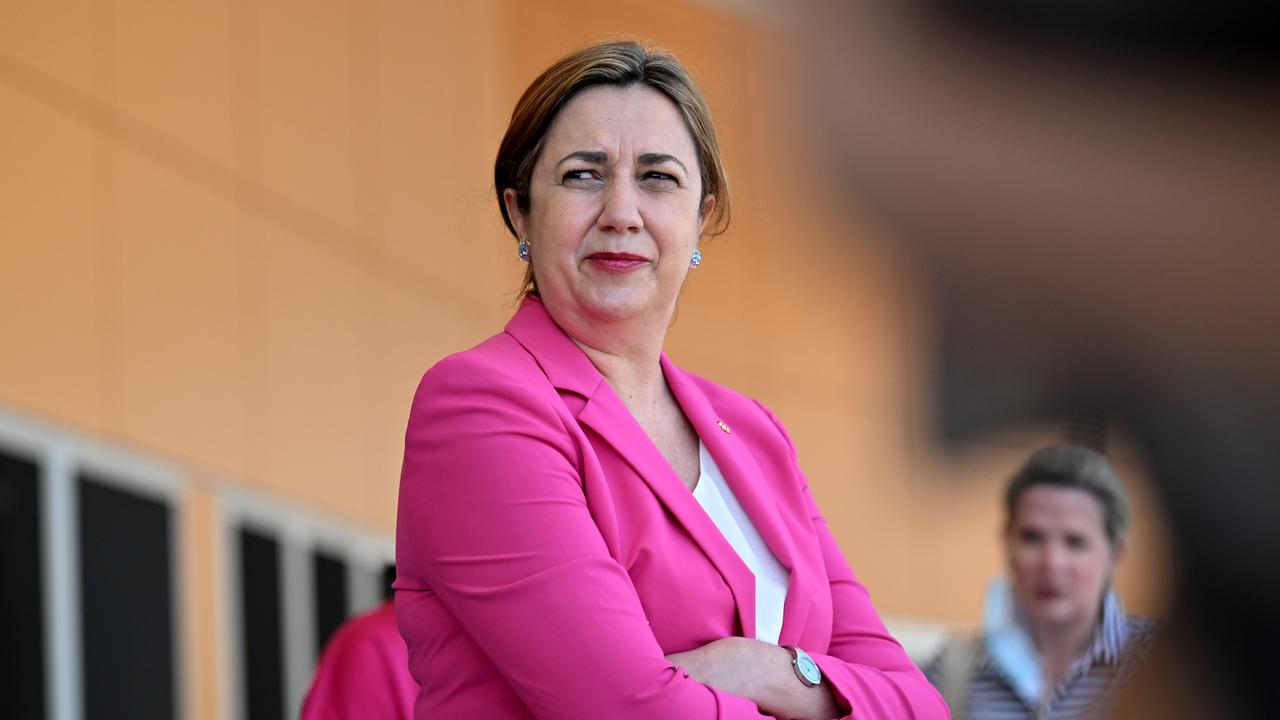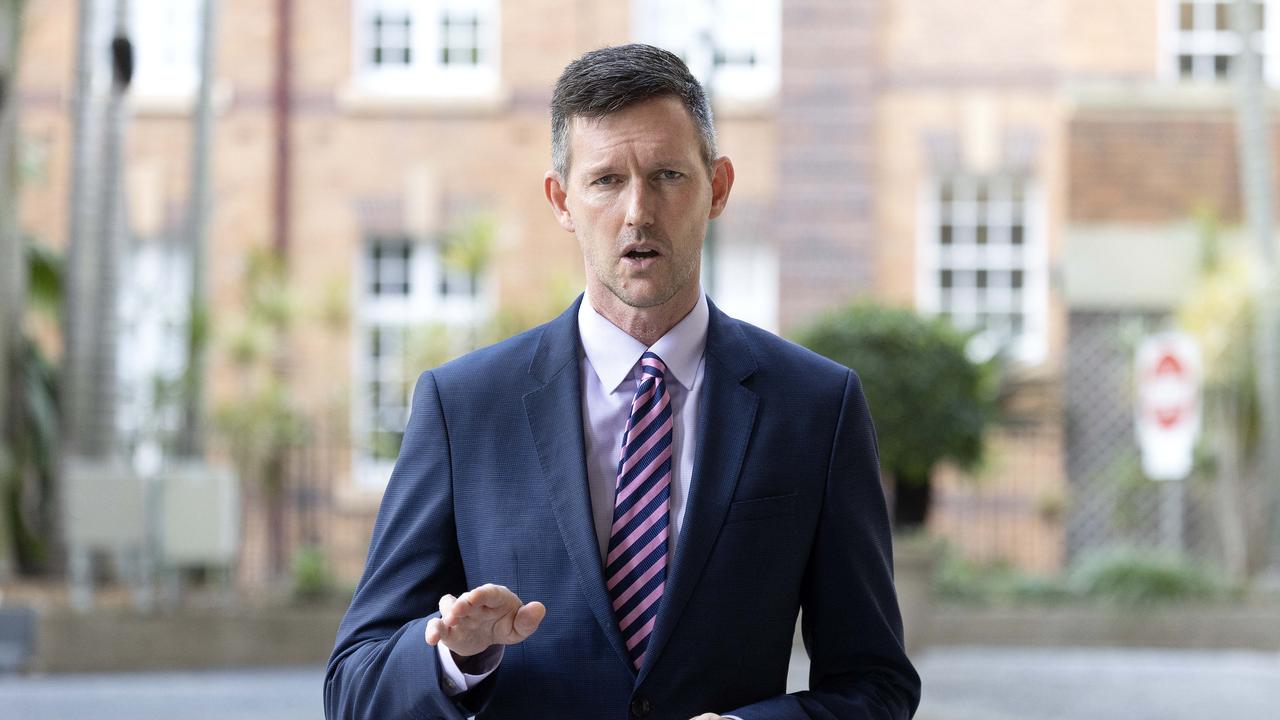Ex-Palaszczuk government adviser breaks silence: Cover-up culture starts at the top
As the Palaszczuk government continues to be engulfed by the integrity crisis, former adviser Neil Doorley has given a “warts and all” depiction of what really happened behind closed doors.
QLD Politics
Don't miss out on the headlines from QLD Politics. Followed categories will be added to My News.
Over more than three years, I worked for four different Palaszczuk government ministers whose offices brimmed with partisan staff who put loyalty to the party and its cause above all else.
But I was the exception – a former journalist with nearly three decades of experience brought in to help a relatively junior minister find their feet after the ALP’s stunning election victory in 2015.
I’d never been a member of the Labor Party, really didn’t know anyone who was, and had only fleetingly crossed paths with some of the new ministers when forced to cover political stories.
That all changed when I assumed my new role, confident I could do my bit to help the Premier deliver on her pledge to “govern for all Queenslanders”.
I was certainly impressed with her commitment “to be more open and transparent than her predecessor”.
How quickly things changed!

What I saw – and unfortunately did – during my time with this government still troubles me.
That’s why I’m now joining the growing chorus demanding an independent integrity inquiry into the government – and why I’m prepared to go under oath to “speak the truth” and name names about the fast-paced, constantly changing and often complex environment in 1 William Street.
For now, I’ll detail – as much as I can – some of the bad behaviour I encountered which highlights why (some) politicians, their staff and public servants need to be scrutinised.
Before I do, I should make it clear the circumstances surrounding my departure from the government sparked 13 months of legal action, which led to a confidential settlement.
And to be clear, in my new role as a media consultant, my clients include an LNP MP.
To all the zealots both inside and out of government who’ll see this as just another attack on their beloved ALP – let me be perfectly clear, this is the truth.
In fact, while it may not seem obvious now, my “warts and all” depiction of what I encountered behind closed doors may help lead to reforms which could improve accountability and standards – in other words, a better and safer workplace.
The serious integrity issues being exposed on a daily basis – quite rightly fuelling public cynicism – aren’t a new phenomenon.
Like cancer, they spread with time.

I still shudder every time I hear “mangocube”, because I used the private email account of at least one minister to conduct official business.
I don’t recall specifics of the emails, but they were portfolio-related.
It was though, an innocent mistake.
Initially, no one explained to me that it was wrong to converse with ministers about office matters on anything but their official accounts.
Despite reading the strict guidelines under the Ministerial Handbook, I didn’t think twice about doing it because I kept receiving – and responding – to emails via the private account.
It wasn’t a red flag.
The practice didn’t last long and I really didn’t think much about it again until a few years later, when Mark Bailey was stood aside before being cleared by the CCC of corrupt conduct.
In my senior media adviser role, I received dozens of emails every day from mostly journalists seeking information on possible stories relating to the portfolios of my ministers.
Invariably, I sent those emails on to department media staff, other ministerial staff and sometimes “up the chain” to the Premier’s media team if it looked like those inquiries could turn “bad for the government”.

I was always careful about what was being put in the emails, because of the growing threat of Right to Information (RTI) requests – where ministers and public sector agencies provide information to applicants “unless there is a good reason not to”.
In one office, we were encouraged to “purge” emails which could come back to damage the minister/government down the track.
I later found out this was designed to help circumvent the RTI process, because requests for information usually didn’t include “deleted emails”.
There was also the time, in the weeks leading into the 2017 state election where staff, including me, were directed to take the extreme measure of hand-delivering documents – relating to a particularly sensitive issue – to other ministerial offices to avoid leaving a “digital footprint”.
That’s because a senior journalist had successfully obtained damaging documents under an earlier RTI and an increasingly secretive government didn’t want to be exposed again to unwanted scrutiny.
I can’t remember exactly where that particular directive came from, because obviously, it was never put in writing.
Because it was preferable to either call someone or talk to them directly, the news was relayed to me by one of my superiors.
Another way the Premier’s much-trumpeted “checks and balances” are being undermined is through the lack of support for mainly junior staff, who I know can suffer terribly in high-stress, emotion-charged ministerial offices.
Another reason I’m speaking out now is to help make sure no other teary staffer is forced to seek shelter in another office, feeling threatened and vulnerable.
It must stop.
From my experiences, I’m qualified to say there was confusion around conduct.
While I knew there were formal processes in place, they weren’t visible.
It was a “fragmented” and “flawed”, even toxic environment.
There were significant accountability gaps in who and what was covered.
Put simply, staff weren’t held to account.
If someone did raise an issue about a minister, they were moved into another office.
So effectively, the solution was moving the staffer, not dealing with the problem.
For the record, before I finished up, I sent an email to one of the Premier’s current advisers asking for a meeting to discuss “issues” I was experiencing in my office.
I never even got a reply.
Like most of my emails though, I’ve kept a copy so perhaps I can send it again if they finally do want to address those concerns.
And while I left my government job several years ago, all the ministers I worked for are still there – along with several staff who certainly controlled office agendas.
Public institutions need to be trusted, not only by the general public but also by their employees.
Clearly, there is room for improvement when it comes to ethics, values and integrity.
The time has come for the Premier to deliver a very clear and strong statement that integrity lies at the heart of her government.
An independent inquiry must be prioritised to offer the public the assurance it demands – and the protection government staff deserve.
More Coverage
Read related topics:Integrity crisis






